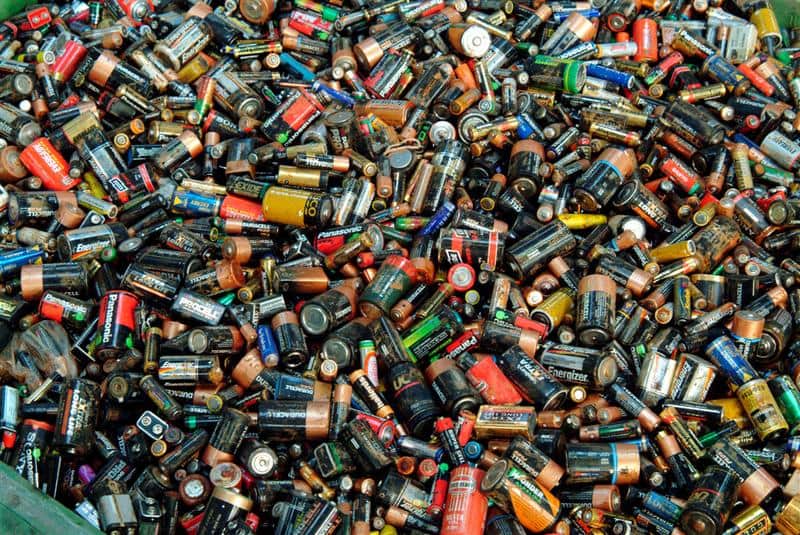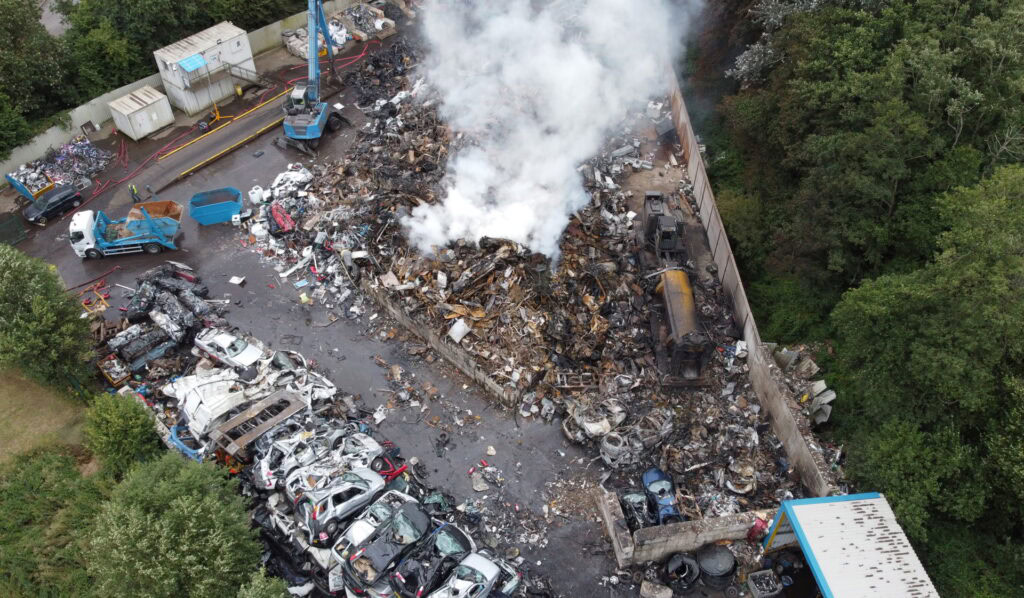Large numbers of retailers and offices are unaware of the health and safety risks of carrying out on-site battery collections and are failing to alert their insurers, Viridor has warned.
He also highlighted issues that needed to be taken into account by those offering battery collection points – one of the most pertinent being the need to alert insurance companies.
Mr Griffiths said: “If you have got a premises and you get a battery fire and your place burns down you then need to go to your insurer and explain. And if you haven't informed them you have got battery collections then you are not going to get any payout.”
Drawing on anecdotal evidence, Mr Griffiths detailed a battery collection taking place at an unnamed office, where the employees were unaware who the firm's battery compliance scheme was, the collection bin was a mixture of different battery chemistries and no risk assessment had been carried out before installing the collection point.
“There are a large number of questions around operations like this,” he said. “Who is responsible for quality control? Who carries the legal obligation?”
Furthermore, Mr Griffiths pointed to mixed chemistries of batteries being collected by companies and shops, with concerns voiced about collections of lithium batteries as well as batteries with wires showing.
Lithium batteries, such as those found in laptops and mobile phones, are a major fire risk once they overheat or react with water. And, lithium battery fires can also lead to explosions.
He said there were a number of issues at hand that would have to be taken into account before any company adopted a battery collection point, such as: Hazardous Waste Regulations; ADR [dangerous goods legislation] for transport; Health and Safety; use of fit-for-purpose containers; risk assessments; and, battery compliance schemes.
Incidents
However, Julie-Ann Adams, director of battery recycling firm Accumulator Recycling, downplayed some of the concerns raised by Mr Griffiths as she discussed UK efforts to meet the Battery Directive targets.
“The level of incident is quite low,” she said. “Most battery containers will have 94% alkaline batteries and that includes 9V batteries, in that lithium batteries will only be 0.2% which is very, very low but this is going to increase over the next few years. However, I still think the risk is very, very low.”
“Companies have been collecting them across Europe for some time and the number of incidents in offices or private households is negligible but that doesn't mean we shouldn't still assess it.”
Ms Adams added that the Health & Safety Executive (HSE) had been carrying out “laboratory experiments” on batteries, which had resulted in fires, and she was “worried that the HSE are going scare the public and make it quite difficult for the schemes to reach their battery recycling targets.”
Hounslow
Also speaking at the event, Natasha Epstein, head of waste and recycling at the London borough of Hounslow, and James Farquhar, senior contract manager at SITA UK, discussed the measures that the council and its waste contractor SITA had undertaken to collect household hazardous waste at the kerbside.
This included an extension of its service to include mobiles phones, industrial and automotive batteries, portable batteries and printer cartridges in the local authority's collections. To date, the tonnages of the material collected are low, according to the council, but it is anticipated that this will increase.










Subscribe for free